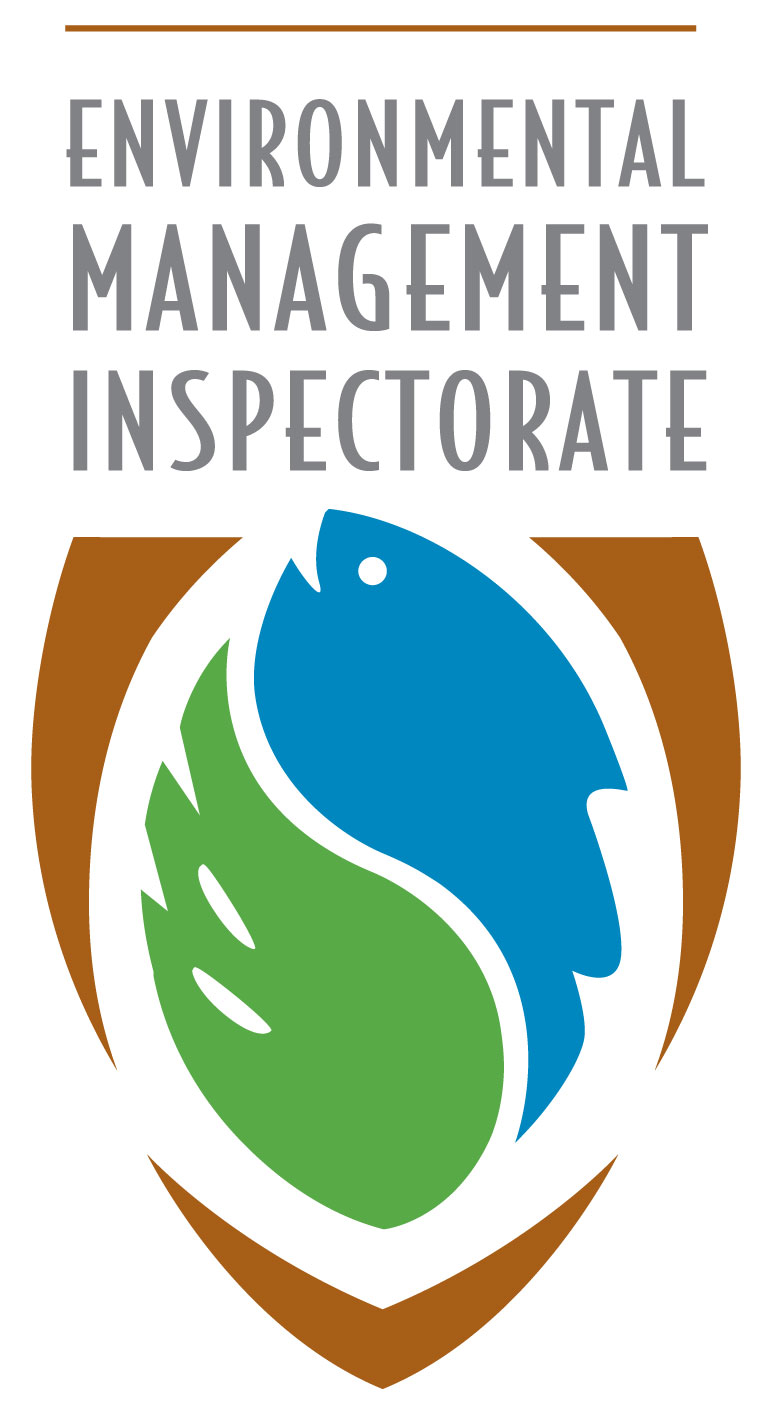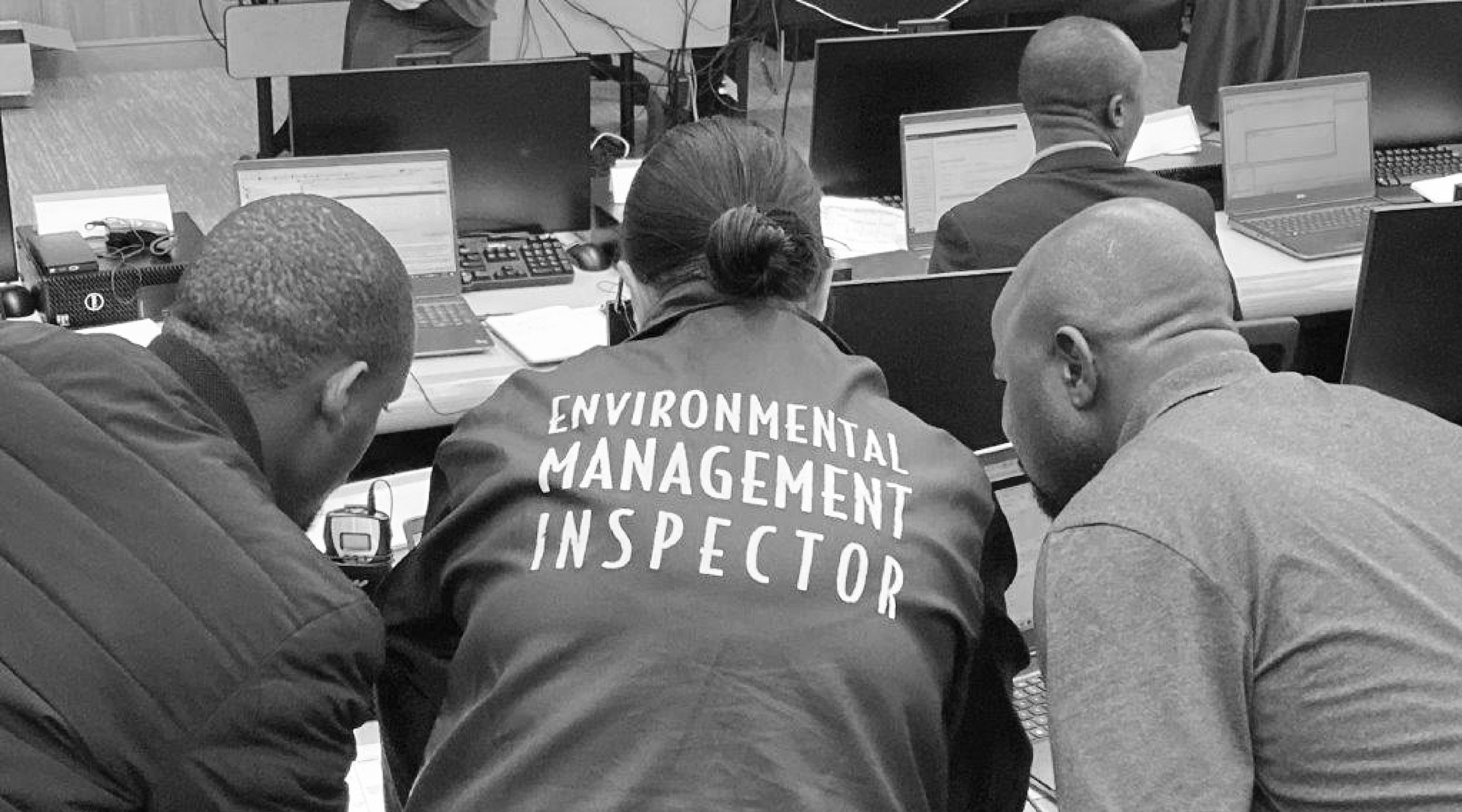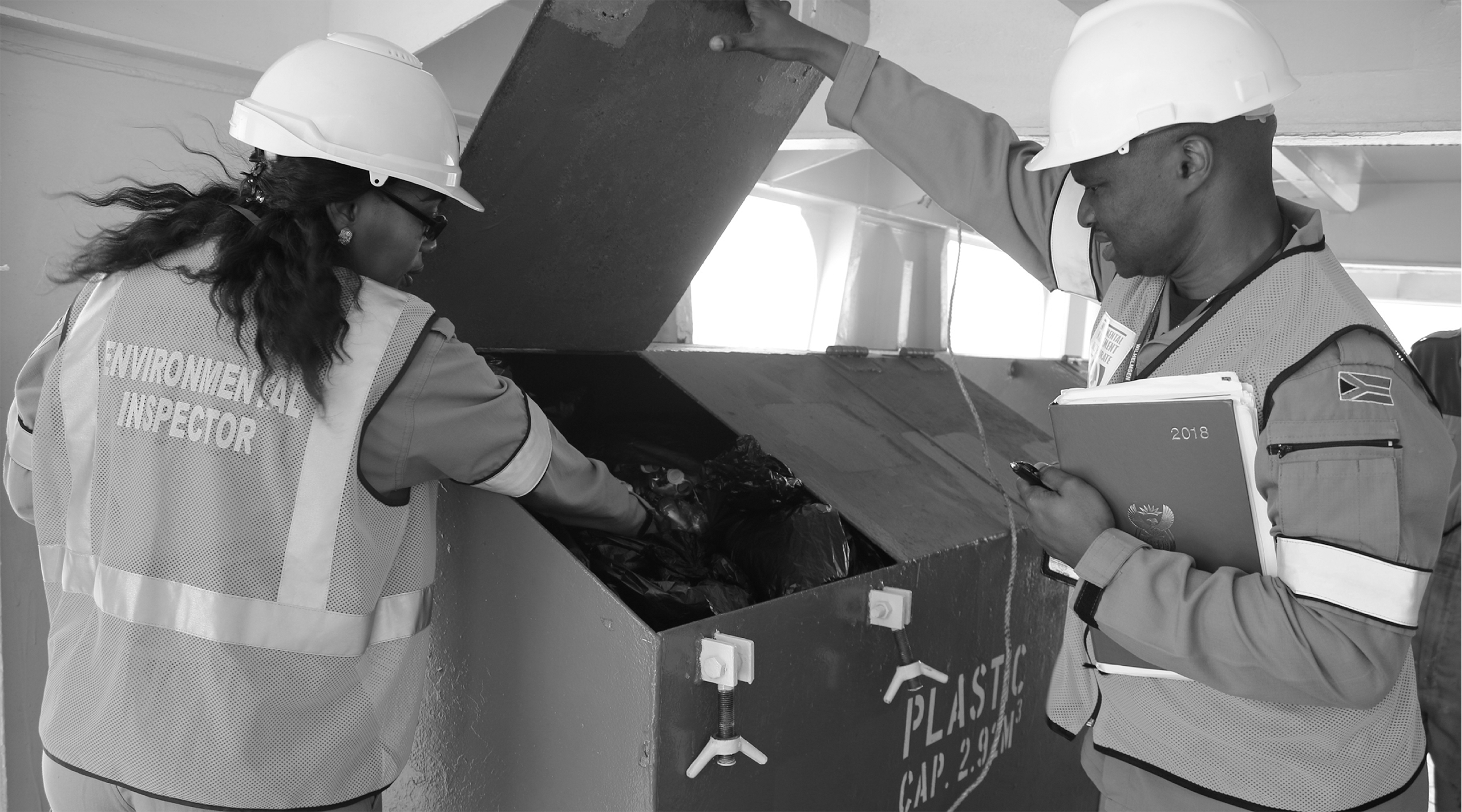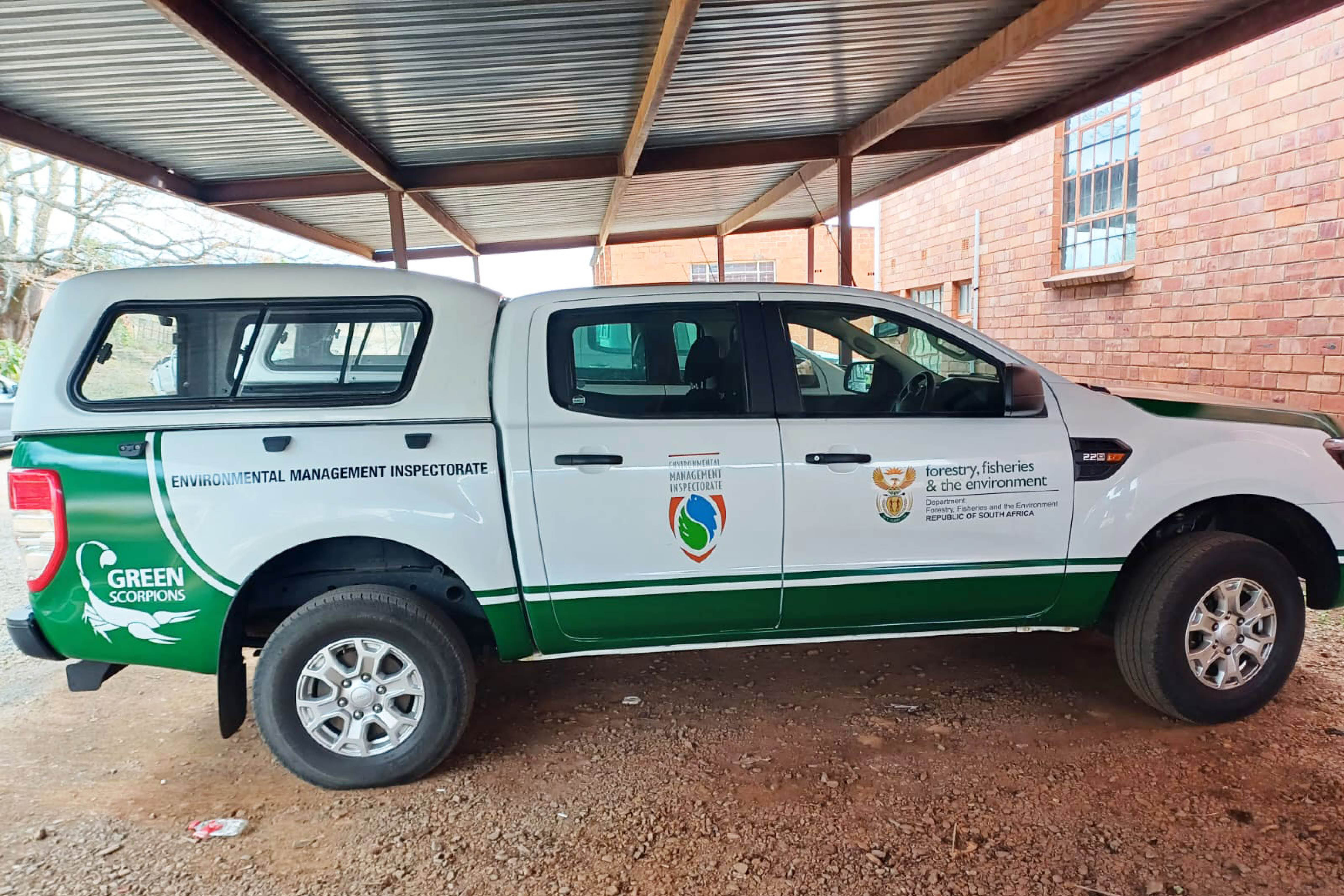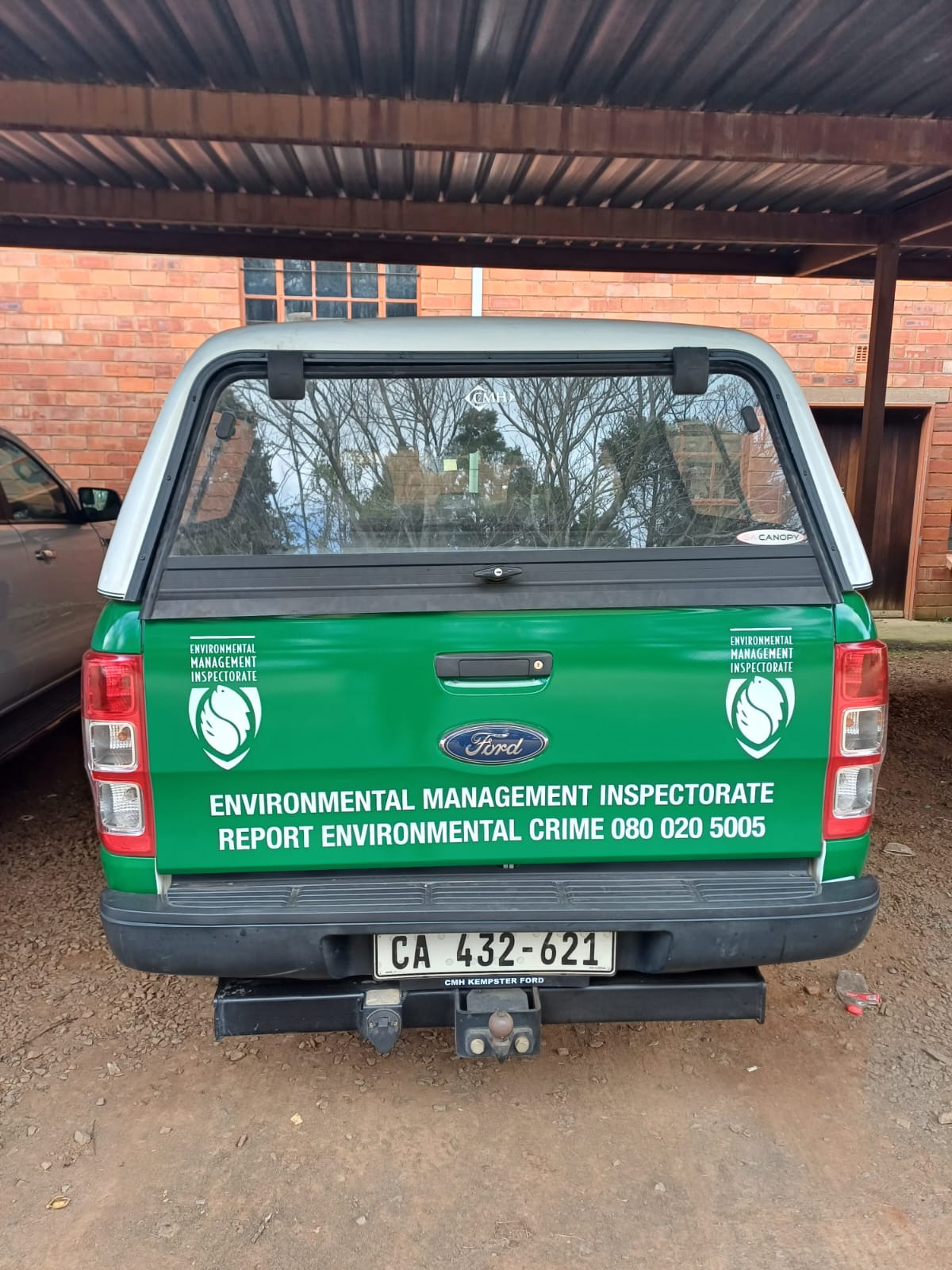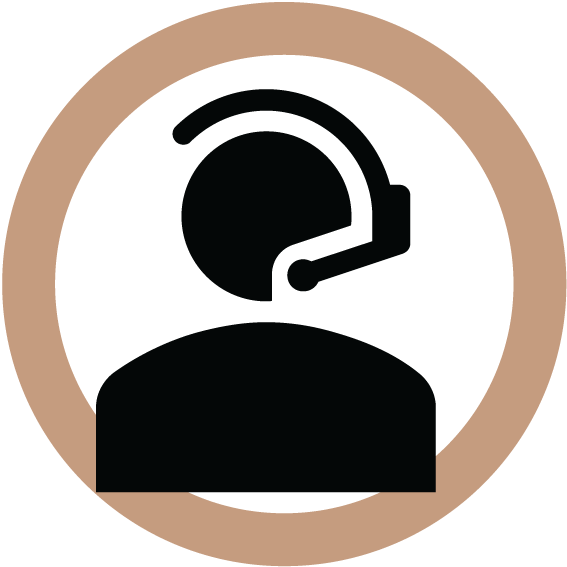INTRODUCTION
The Environmental Management Inspectorate (EMI) is a network of officials from various government departments and conservation entities at national, provincial and municipal levels of government, who have been tasked to undertake compliance and enforcement with environmental legislation.
Section 24 of the Constitution of the Republic of South Africa, 1996 (Constitution) guarantees everyone the right to have the environment protected, for the benefit of present and future generations, through reasonable legislative and other measures that prevent pollution and ecological degradation; promote conservation; and secure ecologically sustainable development and use of natural resources while promoting justifiable economic and social development. EMIs therefore have the duty to give effect to this right by applying the necessary compliance and enforcement measures to implement the comprehensive suite of environmental legislation in South Africa.
Prior to the creation of the EMI (which was brought about by an amendment to the National Environmental Management Act 107 of 1998 (NEMA) in May 2005) compliance and enforcement in the green (biodiversity and protected areas), brown (pollution, waste and impact assessment) and blue (water resources and coastal management) sub-sectors was largely undertaken in a fragmented, uncoordinated manner. The amendment to NEMA sought to break through this traditional separation between the protection of different aspects of the environment. A transition towards a more integrated Inspectorate has resulted in the inclusion of a broad range of government officials, including park rangers and conservation officers, air quality officers, marine and coastal enforcement officers, pollution and waste enforcement officials and officials monitoring urban developments.
Today, the efforts of all of these officials are coordinated by the co-operative governance forum, known as MINTECH Working Group 4, which not only comprises of representatives from national and provincial environmental and conservation authorities, but also relevant officials from the departments responsible for water affairs and minerals and energy. This forum also facilitates coordination with other relevant role-players, including the National Prosecuting Authority, the South African Police Service, South African Revenue Service and Border Management Authority. Due to the fact that the Constitution allocates environmental compliance and enforcement to all three spheres of government, the EMI network spans 6 national departments and entities, 14 provincial departments and entities, and a large number of metropolitan, district and local municipalities.
EMIs can be identified by the EMI logo – which has been designed to represent a shield of protection and compliance and enforcement for the blue, green and brown sub-sectors. All designated EMIs are required to undergo a basic training programme approved by the Director General responsible for environmental affairs before they can designated.
MANDATE & FUNCTIONS
EMIs are mandated to assess compliance and enforce a broad range of environmental legislation regulating the green (biodiversity and protected areas), brown (pollution, waste, impact assessment) and blue (coastal management, freshwater resources). In order to execute this mandate, EMIs have been accorded the following powers:
- Investigate: question witnesses, inspect and remove articles, take photographs and audiovisual recordings, take samples and remove waste
- Inspect: enter premises to ascertain whether legislation is being followed and seize evidence of criminal activity
- Enforce: search premises, containers, vessels, vehicles, aircraft and pack animals; seize evidence and contraband; establish road blocks and make arrests and issue admission of guilt fines.
- Administrative enforcement: issue compliance notices
The EMIs are not empowered to prosecute cases in court. All cases continue to be handed over to the National Prosecuting Authority (NPA) for prosecution. The EMIs therefore work closely with prosecutors country wide to ensure the successful prosecution of offenders.
BRANDING
EMIs are recognised by the unique and distinctive blue, green and brown logo. This logo appears on most of the uniform items that are worn by EMIs and is designed to identify them as government officials authorised to carry out their legislative compliance and enforcement duties.
OUR STAKEHOLDERS
MINTECH WGIV
MINTECH Working Group IV is the primary cooperative governance forum between national and provincial organs of State that execute an environmental compliance and enforcement function. Working Group IV was formally created in 2007, following an amendment to the National Environmental Management Act 107 of 1998 (NEMA) in May 2005, which provided for the designation of Environmental Management Inspectors (EMIs). The rationale behind the creation of EMIs in the statute books, was to create a single set of standardised compliance and enforcement powers for all sub-sectors, including green (biodiversity and protected areas), brown (pollution, waste and impact assessment) and blue (water resources and coastal management).
As an interim measure, between 2005 and 2007, the national department responsible for environmental affairs convened the national EMI Task Team, to undertake the necessary coordination to support the commencement of EMI operational activities, including the establishment of a standardised training programme, the development of a common corporate identity and well as the drafting of relevant standard operation procedures and guidelines.
Today, MINTECH WGIV is a fully fledged Working Group, dedicated exclusively to engagement on environmental compliance and enforcement issues, chaired by the Chief Directors responsible for these functions at the national Department of Forestry, Fisheries and the Environment. There are currently 20 standing members of MINTECH WGIV, comprising of national and provincial departments, as well as national and provincial conservation entities as follows:
National departments and entities:
- Department of Forestry, Fisheries and the Environment
- South African National Parks
- South African Biodiversity Institute
- Isimangaliso Wetland Park Authority
- Department of Water and Sanitation
- Department of Minerals Resources and Energy
Provincial departments and entities:
- Mpumalanga DARDLEA
- Mpumalanga Tourism and Parks Agency
- Northern Cape DENC
- North West DREAD
- North West Park and Tourism Board
- Western Cape DEADP
- CapeNature
The Key Performance Areas (KPAs) of MINTECH WGIV are to develop, implement and improve the overall compliance to environmental legislation (including monitoring and reviewing MTSF/Sector Plan targets and performance (Annual and Quarterly Progress Reports); the planning and execution of joint operations with national, provincial and local environmental authorities in relation to biodiversity, protected areas, pollution, water, waste and impact assessment and integrated coastal management legislation; the development of legislation, guidelines, tools and procedures on environmental compliance and enforcement; the sharing of compliance and enforcement statistics; and the facilitation of stakeholder Engagement and Collaboration.
MINTECH WGIV meets on a quarterly basis to discuss the abovementioned issues, and where appropriate, will escalate priority compliance and enforcement issues to the administrative leadership forum (MINTECH, consisting of Director Generals, Heads of Departments and Chief Executive Officers responsible for the environment) or even to the executive leadership forum (MINMEC, consisting of the Ministers and provincial Members of the Executive Councils[MECs]). The decisions, recommendations and guidelines of MINTECH WGIV also filter outwards to the operational EMIs for implementation.
In addition to the main MINTECH WGIV forum, there are also a number of sub-forums, which focus on specific key areas, namely , the National Compliance Forum, the National Biodiversity Investigators Forum (NBIF), the National Pollution and Waste Investigators Forum (NPWIF), the Rhino Anti-Poaching Committee (RAP) and the EMI Firearm Task Team (EFTT).
Becoming an EMI & EMI basic training
Enviro Crimes Hotline
NECER report


